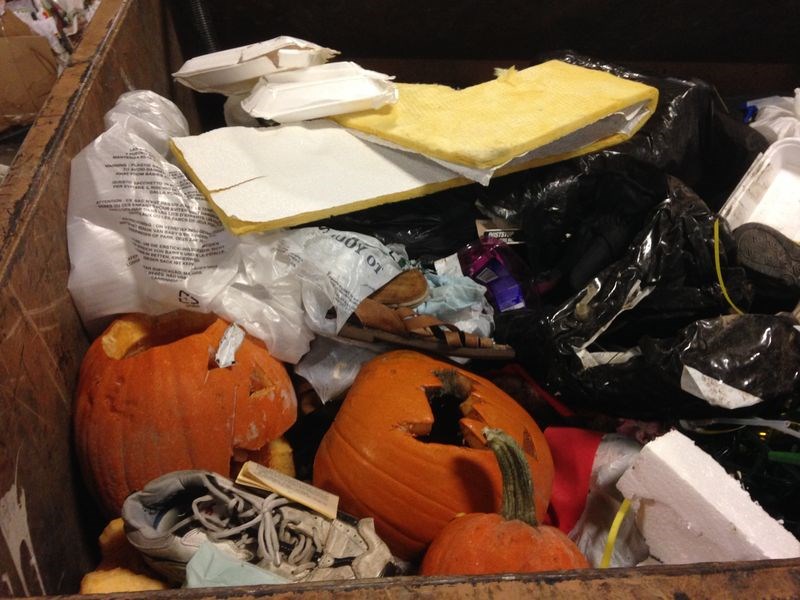Canora town council spent a fair amount of time during the last regular meeting deciding what to do about the large amount of garbage found in blue recycling carts.
It’s an ongoing issue between Ottenbreit Sanitation Services and the town, said Michael Mykytyshyn, chief administrative officer. While some rumours suggest that Canora is the worst community served by Ottenbreit for having garbage among the recyclables, he said that he wouldn’t doubt that it is true.
Council is looking into developing some severe penalties for residents who fill their recycle carts with garbage, Mykytyshyn said. Currently, there are no penalties in place.
However, for the time being, council decided to continue with public education regarding what can go into the recycling carts and what should not, he said.
“I have a hard time believing this was a mistake,” Mykytyshyn said when looking at photographs of some of the garbage found in the blue carts. “Someone is just being ignorant. Who would even think that dirty diapers are recyclable?”
He pointed to a handout that the town produced regarding what can and cannot go into the blue carts.
Allowed in the blue carts are: cardboard and box board; mixed paper; beverage cans, bottles and boxes; plastic food containers, including yogurt, peanut butter and salad
dressing containers; plastic containers including plastic mouthwash and shampoo bottles as well as bleach, detergent and household cleaners; and tin.
Not allowed in the blue carts are: glass, hazardous materials, aerosol cans, car batteries, lighters, scrap metal, wire coat hangers, pots and pans, construction materials,
electronics (including TVs, printers and computers), black garbage bags, house wares, ceramics, drinking glasses, light bulbs, mixed packaging materials, deodorant sticks, toothpaste tubes, frozen juice containers, food or yard waste, grass clippings, leaves, table scraps, plastics that are not containers, cutlery, laundry baskets, pens, straws, Tupperware
containers, drinking cups, disposable coffee cups, and paper or plastic drinking cups.




